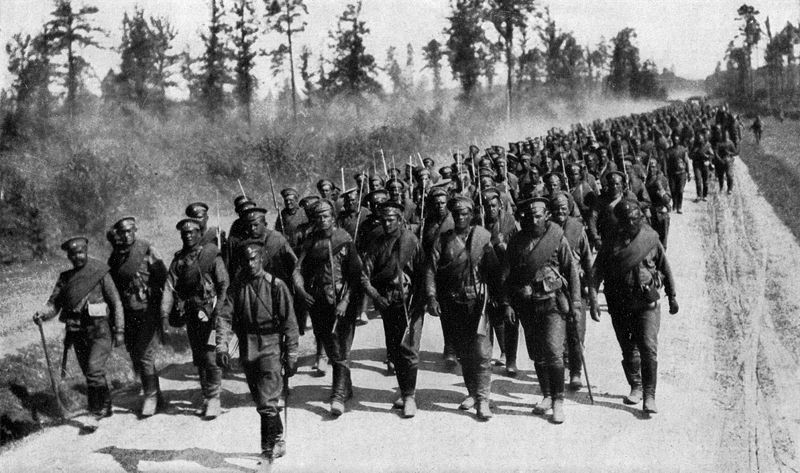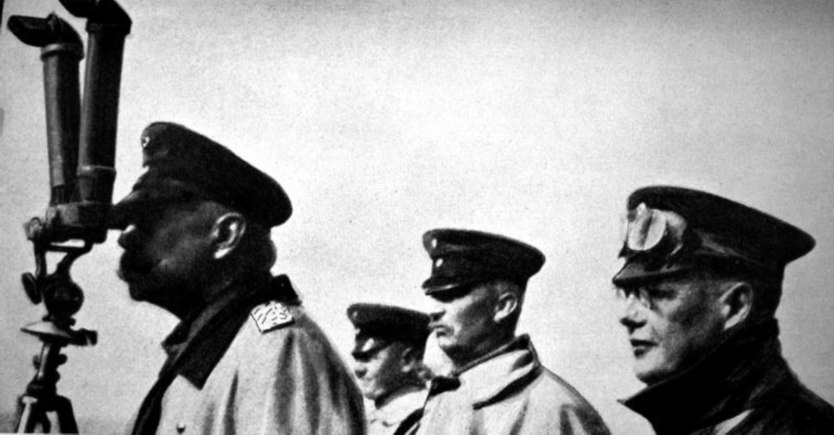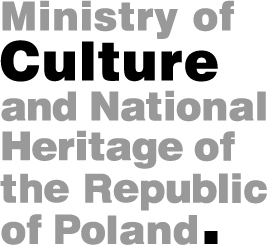|
|
The fragment below, comes from a manuscript of memories from 1914, written by a teacher from the Town of Olsztyn, Johann Rittel, found in a branch of the Olsztyn National Archive in the Town of Nidzica. "We had not yet learnt about the Tannenberg victory. In that morning after our liberation, I went to the butcher's of Groß to buy some meat for workmen in the bakeries and additional inhabitants moved to our place. The task was a real achievement. First, there was very little meat. Second, I was told that the army enjoyed precedence. "But there is no army!", I replied. At this moment, I noticed a German officer who made a very big order. He had taken part in The Tannenberg Battle, I learnt. I approached him and asked: "Lieutenant! How did the battle end? We have been freed from under the Russian occupation but, still, we are not reassured absolutely." "You can feel absolutely safe", he replied. "The Russians were defeated. I have just arrived from Olsztynek". I felt happy, nevertheless, I found it hard to believe. In front of Danehl's (a book shop at 5, Zeppelinstraße) I met a sergeant, so I asked him, too, what matters were like. He confirmed what the lieutenant had said. They were both from the same unit. They came to Olsztyn by automobiles after the fight to buy some meat and bread for their Company. I was able to give him a whole batch of bread because, for some time, we were baking extra batches in reserve. We learnt much more about The Battle of Tannenberg on the same day. Soon the first prisoners appeared in town. After them, arrived marching troops in large numbers which the Town of Olsztyn saw for the first time; and increasingly more and more Russians taken as prisoners, who had strode across Olsztyn as victors only a few days before. Marshal von Hindenburg, who commanded The Battle of Tannenberg, delivered us from Russian hands and freed the whole of East Prussia from the enemy". After the Battle of Tannenberg, subsequent transports of Russian POW's swept across Olsztyn. Our Olsztynian teacher got a propaganda leaflet from one of the Russian captives, prepared by the government of Tsarist Russia. Here is what it read: "To you the Prussian people we speak - we the representatives of Russia as the Herold of a united grand Slavic area use these terms of reason. Stop, the mindless amongst you, before it is too late. Look around! The whole world has turned the blades of its weapons against you, you the enemies of peace. Russia, France, England, Serbia, Montenegro, the Belgians - pushed to defence by you, and even Japan - all of them have taken up arms against you, you who are like wild Huns, to defend themselves against your invasion. Your allies, Italy, have turned away from you, the threat of great suffering hanging over your heads. You are surrounded and squeezed by the fetters of iron of the Slavic avalanche from the east and by the French, allied with the English and the Belgians. The German government, blinded by too much fervour, cheats its own people who have already felt terrible dismay. What victories have been your portion? The one under Lüttich? Where are your laurels of victory over France? Where - the Russian revolution and uprising? All of this is utopia. You keep on losing battle after battle both in the West and the East but all of this is kept secret from you. The whole of Russia to a man is rising in defence of the general Slavic question and is not going to put its sword down before the fight has been fought to the very end. We will bring you peace which will ensure your peaceful, cultured and productive existence in the future. Put your weapons down as your defence will be of no avail. Stop this unnecessary bloodshed. The Russian is kind-hearted and loves peace, he is not going to seek revenge for your barbarian slaughter of helpless peoples in Calisia and Czestochowa. We are fighting against German soldiers but not against the German nation. The Polish people living in Germany are our Slavic brothers. We advise those of your civilians who are of a nonviolent predisposal to behave peacefully and in a conciliatory way, and we will spread our protective arm over them. Put down your weapons, which were forced into your hands by your State. Give in! The Russians treat POWs well and respect conventions, by being kind to them. A Prisoner of War cease to be our enemy, we do not kill the wounded". Translated by Marzena Beata Guzowska
1
2
3
|

Russian troops marching. .jpg)
Russian artillery during war operations. .jpg)
A patrol of Russian infantry on the front line in East Prussia. 
Field Marshal Hindenburg, General Ludendorff (second from the right), and Colonel Hoffman (first from the right) during the Battle of Tannenberg. |
|||
| |||||
